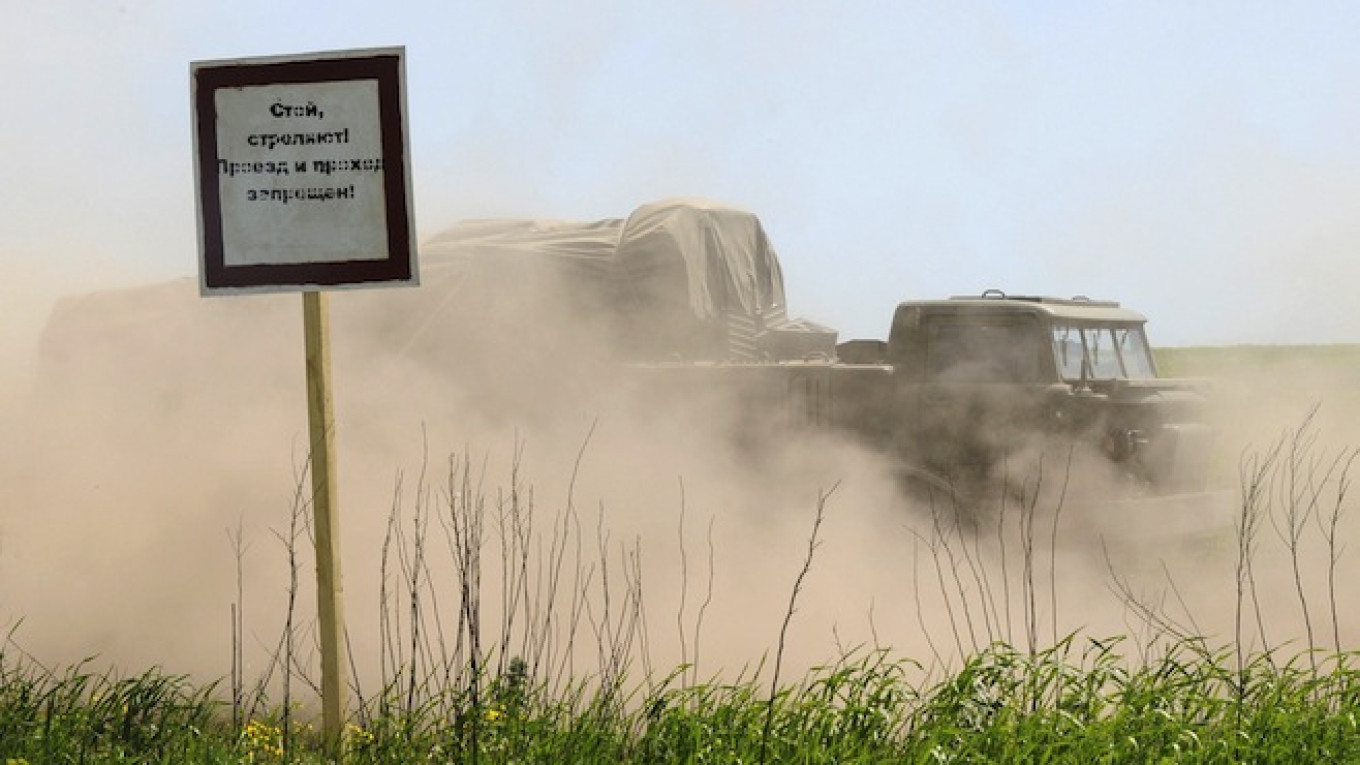A senior Russian Defense Ministry official warned on Monday that Moscow would boost its forces on its Western flank should the United States store heavy arms in the Baltic states and eastern Europe.
A U.S. official said over the weekend that Washington planned to store heavy military equipment in the Baltic states and eastern Europe to reassure allies unnerved by Russia's role in Ukraine and to deter aggression.
The Russian official, General Yury Yakubov, was quoted as saying any such move would be "the most aggressive step by the Pentagon and NATO" since the Cold War.
"Russia would be left with no other option but to boost its troops and forces on the western flank," Yakubov was quoted as saying by the Interfax news agency.
He said Russia would first add new tank, artillery and air units on its western border. It would also accelerate the deployment of new Iskander missiles in the Kaliningrad enclave and shore up its troops in Belarus, he said.
Poland and Lithuania have confirmed they are in talks with Washington on stationing heavy arms in warehouses in the region.
Kremlin spokesman Dmitry Peskov declined to comment.
"There were no statements from the United States to that end so I have no comment for now," he told a conference call with journalists. "We will comment if there is a statement."
He said Russian officials were not in touch with their U.S. counterparts on the weekend to learn more about the plans that come as ties between Moscow and the West have hit new lows over the conflict in Ukraine.
Russia has long protested against what it describes as Western attempts to encroach on its territory, including by bringing former Soviet republics and countries once in its orbit in Soviet times into the NATO military alliance.
A Message from The Moscow Times:
Dear readers,
We are facing unprecedented challenges. Russia's Prosecutor General's Office has designated The Moscow Times as an "undesirable" organization, criminalizing our work and putting our staff at risk of prosecution. This follows our earlier unjust labeling as a "foreign agent."
These actions are direct attempts to silence independent journalism in Russia. The authorities claim our work "discredits the decisions of the Russian leadership." We see things differently: we strive to provide accurate, unbiased reporting on Russia.
We, the journalists of The Moscow Times, refuse to be silenced. But to continue our work, we need your help.
Your support, no matter how small, makes a world of difference. If you can, please support us monthly starting from just $2. It's quick to set up, and every contribution makes a significant impact.
By supporting The Moscow Times, you're defending open, independent journalism in the face of repression. Thank you for standing with us.
Remind me later.


